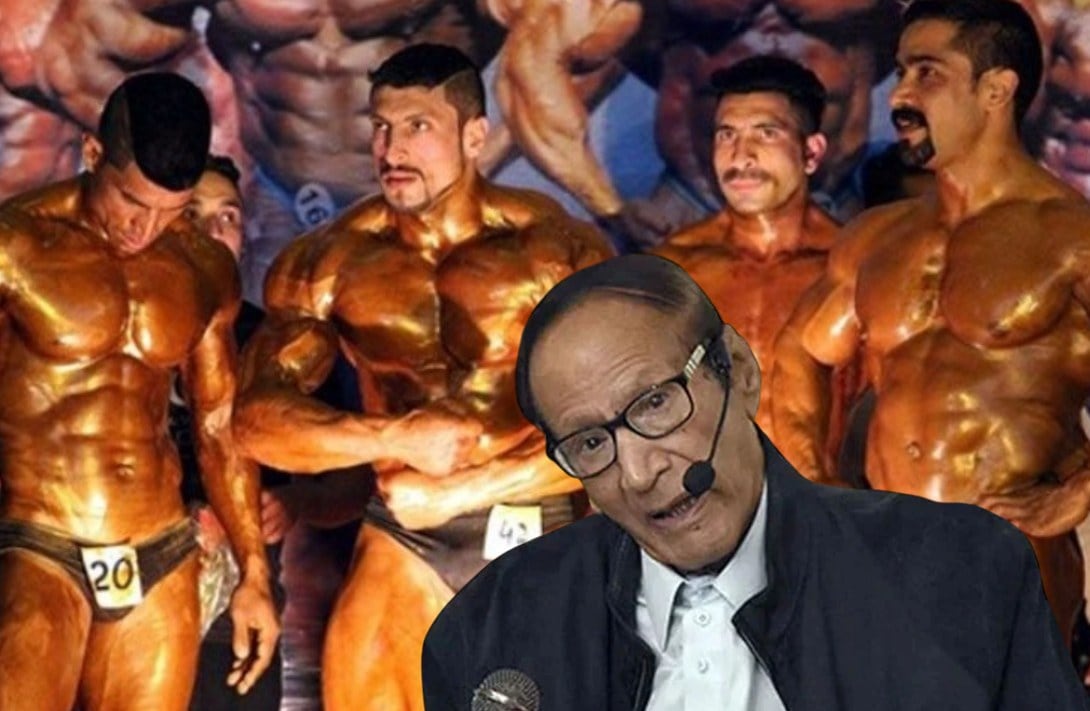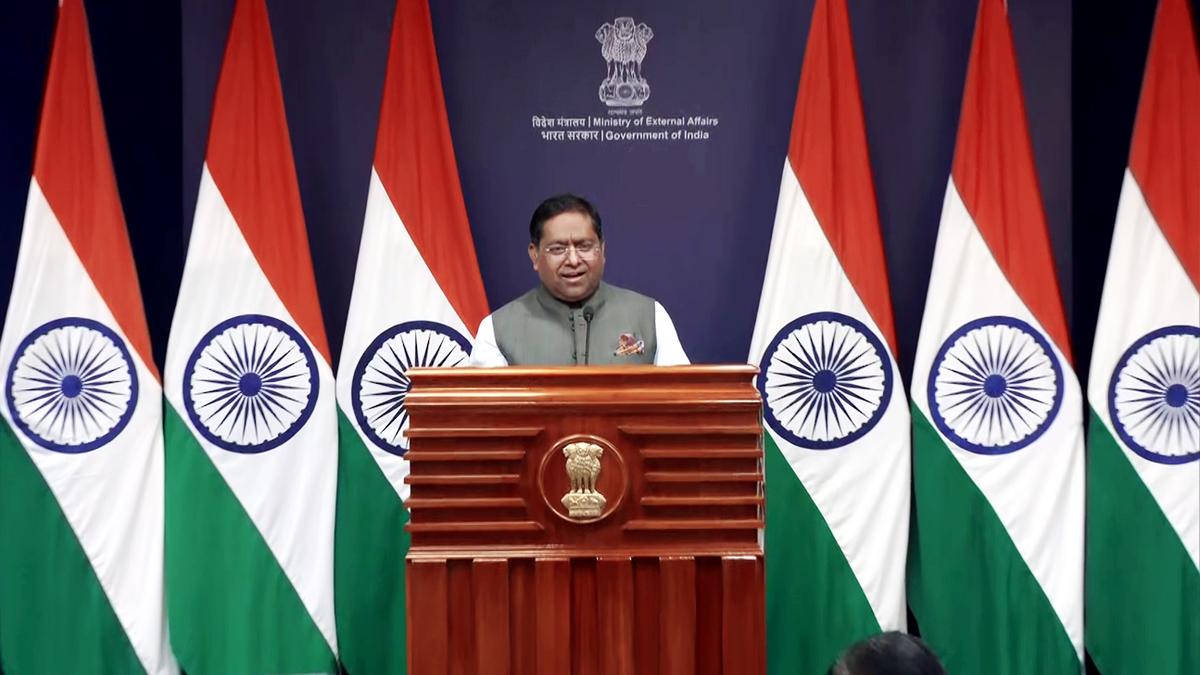
I have this weird theory that my sports teams do the best when everything else is coming apart. It’s Mother Nature’s way of maintaining balance in the world, for better or worse. Dramatic proof came Sunday when, in one of the worst weeks for U.S. democracy that I can remember, the Eagles won one of the most electrifying football games I’ve seen since I started watching them 59 years ago, with a blocked-field-goal finale that is still giving me the chills. Go Birds! We’re still waiting on the rest of Hannah Einbinder’s mission statement to be realized.
If someone forwarded you this email, sign up for free here.
A strongman forced Kimmel off the air. The people brought him back
Glenn Beck, the right-wing radio host who was the bête noire of my 2010 book about the rise of the Tea Party, was almost right about something once. In January 2009, he told a fellow conservative caller who was presumably despondent over Barack Obama’s new presidency that their side isn’t really outnumbered, that “we surround them.” This became the battle cry of Beck’s rapid rise and fall.
He wasn’t wrong in arguing that everyday people, if forceful enough and united, are stronger than the institutions they fear are keeping them down. But — while there’s tens of millions of Americans in both political camps — I’d also argue that Beck was betting on the wrong “we.”
The people who still believe in U.S. democracy surround the forces trying to destroy it. And we outnumber them.
That might have sounded like a flight of fantasy last week, in a dark hour for liberty and its most fundamental value, free speech. The brOuhaha that started with some controversial-but-not-that-controversial comments by ABC’s late-night comedian Jimmy Kimmel after the Charlie Kirk assassination became a full-blown First Amendment crisis when Donald Trump’s chief airwaves regulator threatened government action if Kimmel were not punished for his words.
The pressure from two local-TV conglomerates and the rapid capitulation by ABC’s parent company Disney, which suspended the show indefinitely, felt like a pivot point in the rapid downhill slide of U.S. democracy. Between a strongman president’s demand to punish a comic who routinely made fun of him and a massive corporation’s eagerness to bend to dictatorship, it seemed like a Rubicon was crossed.
A Rubicon that was quickly crossed again, the other way.
The assault that targeted not just a cherished American right but also a popular entertainer quickly transcended all the other crazy things that have happened under a president who said he’d act as a dictator for a day — a day that apparently has never ended.
The 20th century gave us the atom bomb, but the 21st century found its most potent weapon in the “cancel” button. ABC’s profits no longer depend on you watching The Wonderful World of Disney on Sunday night, but on you spending $15.99 a month for Disney+ Premium. But Americans angry over Kimmel’s suspension began voting with their fingers.
There’s no way yet for outsiders to know how many people cancelled Disney+, although Google searches for instructions went through the roof and the webpage for terminating subscriptions was reportedly crashing at times. It was proof that in a nation ruled by late-stage capitalism, economic power is king.
The octopus-like tentacles of the folks who brought you The Little Mermaid made Disney an easy target for consumer rage. So-called “Disney adults” — grown-ups who can’t stop going to theme parks and posting about it on social media — took to Instagram to encourage their fellow travelers to stay away. Indeed, protesters — wielding signs in support of free speech and blasting Trump and Disney CEO Bob Iger — popped up at strategic sites like Disney headquarters and Kimmel’s studio in L.A.
It wasn’t just regular folks. Disney’s initial kowtow to the Trump regime also drew fiery responses for top Hollywood actors and other creative types, many of whom have worked with the storied studio in the past but suggested they might not do so in the future. On Monday, a letter condemning Kimmel’s suspension was signed by hundreds of film industry luminaries including Tom Hanks, Meryl Streep, and Robert De Niro, calling the move “a dark moment for freedom of speech in our nation.”
A few hours after the letter’s publication, Disney blinked. ABC announced that after ongoing talks with the late-night host, Jimmy Kimmel Live! would return to its 11:30 p.m. slot Tuesday night. A monarchical moment had come, and an American uproar demanding “No Kings!” in America had beaten it back.
There were many unanswered questions. As I write this Monday night, it wasn’t clear what Kimmel would say beyond expectations that he’ll in some way apologize for his initial monologue’s implication that Kirk’s assassin might be a fellow conservative. We learned late Tuesday that Sinclair and Nexstar — two companies that own scores of local TV stations, and which are each run by Trump supporters — aren’t ready to resume airing Kimmel, but will any other stations follow suit? Was Trump’s Federal Communications Commission chair Brandon Carr serious on Monday when he tried to frantically backpedal away from his initial comments that sounded like a Mafia threat?
But the biggest takeaway was clear. There may be many viewers who love watching Kimmel every weeknight. But many more who don’t even stay up past 10 p.m. also weren’t afraid to speak out, vote with their wallet, and fight not just for a comedian but for the First Amendment. And if you look harder, it actually wasn’t a one-time event.
Remember Trump’s threat to send troops into Democratic-led Chicago, which he punctuated with a bizarre Truth Social meme that promised to rain down war on America’s third-largest city in the style of Apocalypse Now? Illinois Gov. J.B. Pritzker and Chicago Mayor Brandon Johnson vigorously opposed the move, and thousands of regular folks took to the streets — and then Trump called out the National Guard in Memphis in the red state of Tennessee instead.
CEOs, media moguls and university presidents may be bowing to the regime, but everyday people who don’t have huge paydays on the line are standing up to them on grand juries — refusing to vote felony indictments sought by Trump’s Justice Department in a number of immigration-protest cases in Washington, D.C. and Los Angeles — or on the jury that acquitted a protester who went to trial in L.A.
Consider one of the weekend’s other big stories — the Trump-driven ouster of a U.S. attorney in Virginia and the president’s public upbraiding of Attorney General Pam Bondi for, so far, not bringing criminal charges against some of Trump’s political enemies such New York Attorney General Letitia James and Federal Reserve Board member Lisa Cook. This push to persecute political opponents — who seem to have broken no laws — is profoundly un-American, but so far Trump also hasn’t achieved any actual charges. Maybe autocracy isn’t as easy as it sounded — at least not in this 249-year-old democratic republic.
I try not to plagiarize myself here, but this bears repeating: Dictatorship is not destiny. The 21st century has seen the rise of a new and insidious brand of tyranny called “competitive authoritarianism,” a kind of a neutron bomb that leaves democratic institutions still standing but as empty shells of their former selves. But the tiny exhaust port in their anti-democracy Death Star does seem to give regular folks a little room to fight back — if we can find the courage.
On Sunday, a large throng of mourners attended Kirk’s memorial service in an Arizona football stadium, and some expressed their hope the death of an outspoken right-winger would mark “a turning point,” a play on Kirk’s organization Turning Point USA. Instead, the war on free speech that was launched in Kirk’s name has triggered a backlash, and hopefully that is the actual turning point.
In the fight to get Kimmel unsilenced, millions of democracy lovers found their voice, and something even more important than that: a renewed belief that we are going to win.
Yo, do this!
Ask me anything
Question: Will the No Kings rallies on October 18 have any impact? If so, what? (I plan to go but always wonder) — Lady_Di (@southernupstategal.bsky.social) via Bluesky
Answer: I’m so glad you asked this; this has been on my mind a lot during such a tumultuous week for the American Experiment. The First Amendment is under assault right now, and while we tend to frame this fundamentally as all about free speech, the adjacent rights to free assembly and airing grievances against the government are equally foundational. When the regime throws its weight around to get Jimmy Kimmel off the air, its ultimate goal is to make you too discouraged to speak out. A mass protest like the next No Kings event, scheduled for Oct. 18 and drawing on June’s rallies that put an estimated 5 million demonstrators in the streets, shows a wannabe dictator that we refuse to be silent. And it’s a reminder to all of us that millions of others still believe democracy can be saved. I’m really looking forward to covering this event next month, and I’ll look for you there!
What you’re saying about…
I was overwhelmed by the response to last week’s question about your favorite news sources, which was inspired by the devolution of the Washington Post and other mainstream outlets in the Trump era. It’s hard to do justice to the many replies, but what was repeated most often were news sites based outside the U.S., especially the Guardian and the BBC; a handful of mid-sized sites that have distinguished themselves under Trump such as WIRED, a rejuvenated Rolling Stone, 404 Media, Mother Jones, the Mississippi Free Press and Mehdi Hasan’s new Zeteo; and a slew of independent journalists and thinkers like Marisa Kabas, Heather Cox Richardson, Timothy Snyder, Paul Krugman, Karen Attiah, and many more. One almost universal theme was a fondness for local media. Wrote Ruth Schamberg (a Chestnut Hill Local fan): “Every time I travel — far or wide — I buy a local paper to get a feel for what is happening in a different part of the world. It’s sad so many newspapers have gone out of business.” Indeed.
📮 This week’s question: Yet again, the federal government is facing a shutdown deadline, on Oct. 1 if lawmakers can’t reach a deal over the next week. But should Democrats agree to any budget that continues to fund Trump’s push for autocracy? Or, what concessions should they seek from the GOP to get an acceptable deal? Please email me your answer and put “government shutdown” in the subject line.
Backstory on Tom Homan and the end of bribery
I’m old enough to ride SEPTA trains for free, and to remember when bribery used to be considered a serious crime in America. I was in college in the late 1970s when the FBI — still riding the political anger whipped up by the Watergate scandal — pulled off an undercover operation called Abscam in which agents posing as Arab sheiks recorded their cash payoffs that took down seven members of U.S. Congress as well as mayors and council members, many in the Philadelphia region. But that was nearly a half century ago, and America has changed. Although the recent convictions of former New Jersey Sen. Bob Menendez and his wife are the exception proving the rule, other politicians are proving how easy it is for a top official to go on, take the money and run.
Consider the shocking story that broke over the weekend: The reports by MSNBC and the New York Times that — in an echo of Abscam — undercover FBI agents late last year delivered $50,000 in cash in a bag for the fast-casual restaurant chain Cava to Tom Homan, who would soon become the border czar in the Donald Trump White House. The investigators reportedly paid the cash with expectations that Homan could deliver government contracts, which could then trigger an indictment. The Catch-22 here is that the same Trump election victory that gave Homan — who ran Immigration and Customs Enforcement, or ICE, during the returned president’s first term — his White House post also gave Trump control over a Justice Department that now exists to punish his enemies, and give his friends a free pass. The Homan matter apparently lives on videotape but the criminal case was dropped, thanks to high-level department lawyers such as Emil Bove, who had been Trump’s personal lawyer but after his brief stint in Justice was rewarded with a federal appeals court judgeship.
Of course, the president and his top aides could have declined to hire Homan after learning about his fast-casual FBI payday, but that’s not how Team Trump rolls. The understandable public anger over the decision to drop the Homan case obscures an arguably bigger scandal: The U.S. Supreme Court — itself a cesspool of corruption — has worked overtime during the last decade to make it hard to prosecute any bribery cases, even when the target of a probe is caught with a bag full of cash. The High Court in 2016 redefined bribery when it tossed a felony conviction of former Virginia Gov. Bob McDonnell, with the majority insisting his lavish gifts from a businessman could not be linked to any official acts. Just last year, the Supremes threw out a conviction against an Indiana mayor who accepted $13,000 from a city vendor, because the money came after the contract had been executed and not before. In this climate, federal prosecutors were actually right to question whether a felony case against Homan would hold up — especially since the future White House aide was not yet in government when he allegedly accepted the cash.
Still, the Homan story felt like an exclamation point on both the rampant political corruption of the Trump era, and our seeming inability to do anything about it, or even keep these stories alive in the overcrowded news cycle. At almost the same time that MSNBC and the Times were dropping their stories, Forbes reported that the net worth of Trump and his wife, Melania, has skyrocketed to more than $7 billion, an all-time high, and much of the recent rise is due to cryptocurrency ventures, an industry regulated (loosely, if at all) by the Trump regime. The Times also reported recently on how the United Arab Emirates pumped money into a crypto venture with the families of Trump and his Middle East envoy Steve Witkoff, while the White House brokered UAE access to valuable microchips.
Bob Dylan once sang, “Steal a little and they throw you in jail/Steal a lot and they make you king.” Except now even the ones accused of stealing a little are getting away with it.
What I wrote on this date in 2021
It was right around this date four years ago when the upward spike of America’s murder rate — clearly tied to the massive life disruptions of the COVID-19 crisis — was reaching its peak. On Sept. 23, 2021, I tried to stress that the homicide problem was real, but what was striking was that murder felt less economic than past crime waves and more about anger, from road rage to drive-by shootings based on a Facebook beef. I wrote: “A recent killing during an argument at South Philly’s iconic Pat’s Steaks was notable because it was the second time in 2021 that a customer was killed at a place where the only fear of death is supposed to be your skyrocketing cholesterol level.” Read the rest: “Stop calling America’s murder crisis a ‘crime’ issue. It’s something far worse.”
Recommended Inquirer reading



